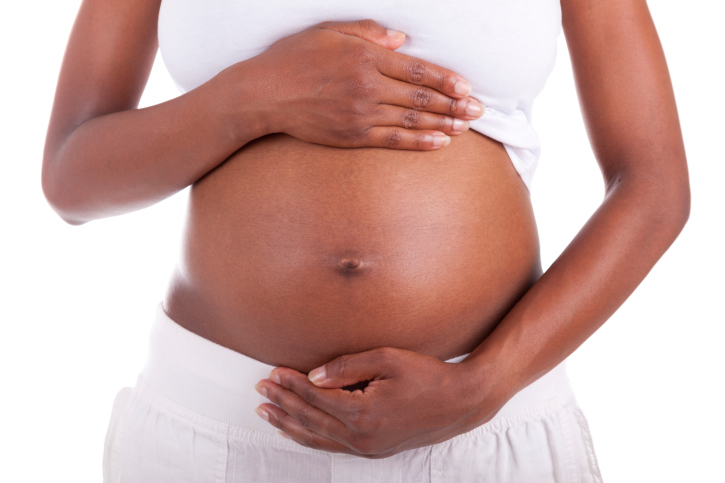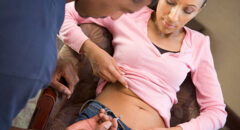 Things can change in the blink of an eye or change of a stop light. After singer Ciara was involved in a car accident during her pregnancy she tweeted, "Thankful For God’s Grace, and Amniotic Fluid," following the scare.
Things can change in the blink of an eye or change of a stop light. After singer Ciara was involved in a car accident during her pregnancy she tweeted, "Thankful For God’s Grace, and Amniotic Fluid," following the scare.
"Ciara and the baby are doing well," her rep Lauren Ceradini added in a statement to USA TODAY. "The driver was illegally in the bus lane and hit the right side of her car."
While the mother of one was spotted a day later with her husband, Seattle Seahawks quarterback Russell Wilson, strolling the streets of sunny Los Angeles, fans were still uncertain whether baby would be okay.
Dr. Idries Abdur-Rahman, half of Twin Doctors TV and contributor to BlackDoctor.org, broke down everything expectant moms should know if you’re involved in a collision. “I always like to start off by reminding my patients that wearing a seat belt is important,” said Dr. Abdur-Rahman.
“There’s a big misconception about wearing a seat belt while pregnant. But it’s a matter of where the seat belt is placed,” he continued. “You want to make sure that the lap part goes under your belly, shoulder strap to go between your breasts and the side of the belly.”
As for when to go to the hospital, Dr. Abdur-Rahman's rule of thumb is that the more severe the accident, especially one where the air bags deploy, the more cautious mothers should be. He explained, "When you’re involved in an accident like that [where the air bags deploy] there’s a lot acceleration that springs both you and your car forward [which] can cause issues with the placenta,” emphasizing the importance of the placenta’s health.
After an accident, many people think about is the baby harmed, but the bigger concern, said Dr. Abdur-Rahman is...
...the placenta. Rapid acceleration or deceleration, or when a mother's belly is hit may cause the placenta to detach early, placental abruption.
During a placental abruption, a mother may experience cramping, full out contractions, or may notice what doctors call uterine petani, in which the uterus is really hard and not contracting in the way it normally would during normal contractions where it would get tight and release – it’s tight and it stays tight.
"Also, keep a lookout for “any kind of bleeding. It could be heavy bleeding, spotting, it doesn’t matter," he cautioned.
After arriving to the hospital, an ultrasound will be performed to assess the placenta. While you can’t always see a placental abruption, there are also blood tests they can do, called the Kleihauer-Betke (KB) test, which looks for how much of the baby’s blood is circulating in mom’s blood. "There’s always going to be a certain amount. But if it is above the threshold, then there could be a possible abruption.”
“Regardless of whether you’re hit from behind, head on, or side swiped – if your air bag goes off and hits you in the belly or if you’re air bag doesn’t go off and you hit your belly on something like the steering wheel -- anytime time there’s direct abdominal trauma, regardless of how many weeks you are, you should definitely go to the hospital.”
Even if it's a "minor" accident, the expert advice is to call your doctor immediately and they will tell you what to do. It’s also a good idea to carry an emergency contact list on your person. It should contain names, phone numbers, and medical information pertinent to your pregnancy in the event of an emergency.
For more helpful tips or to answer more of your urgent OB/GYN questions, check out Dr. Idries and his brother, Dr. Jamil over at TwinDoctorsTV.com or on social media, @TwinDoctorsTV.








